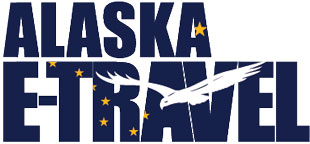
Travel
E-Travel News
May 2018 - Volume 10, Issue 3
In This Issue
Advance Purchase Statistics
The AAM 60.050 Travel Purchase Policy follows Alaska Statute 39.20.140(b), which requires that the state pay no more than "the lowest ticket class fare for the most direct route".
While there is no requirement to purchase in advance, departments approval process should consider the advance purchase for the majority of travel requests. There are various situations that do not lend themselves well to advance purchase of airfares. Most departments can identify those groups within their agencies and purchase accordingly.
When comparing fiscal year data a few trends can be identified.
- The cost of purchases made between 0 and 2 days can vary the most.
- The most expensive time to purchase is between 3 and 6 days in advance of travel.
- The best rates are typically available between 14 and 20 days in advance.
- Purchasing more than 20 days in advance may not provide the greatest savings if travel plans may possible change.
Department Travel Administrators receive an Advanced Air Booking report for air purchases monthly.
The detailed report includes the traveler, the itinerary information, and the number of days the ticket was purchased in advance. The report also includes a summary of the detail that could be shared with department directors.
Administrators should use the report to drill down on individual habits and identify seasonal trends that may increase the average cost per trip.
Improving internal processes by encouraging travel requests and approvals to be completed in advance will help provide a cost savings to the department.

Unused Ticket Automation
In May 2015, CTM presented the State of Alaska with a solution to maximize the usage of unused ticket value without adding additional work to the agencies. The solution CTM proposed is called the Accelerated Unused Ticket Program; but we refer to it as "unused ticket automation".
Initially, one agency expressed interest and agreed to pilot the automated solution. After a few short months, the department decided to implement the automation department wide.
Jump three years forward and half of the State departments have implemented the automation and have successfully reduced the number of expired tickets.
| FY 2014 | FY 2017 | FY 2018 (estimated) |
|
|---|---|---|---|
| # of Expired Tickets | 500 | 300 | 225 |
| $ of Expired Tickets | $240,000 | $128,000 | $90,000 |
How does it work?
Unused tickets are not included in the automation until 6 months after the initial departure date; this allows the original ticket holder the opportunity to exchange.
As a reservation is submitted via E-Travel, it goes through several audit checks. The automation checks the unused ticket database for matching traveler names or potential matches to the carrier and ticket value. If no match is found the reservation is ticketed. If a potential match is found, it is queued to an agent for special handling, the exchange is processed, and a Final itinerary is sent. There is no action required by the traveler or planner.
Tickets that have been transferred to another traveler are reported monthly to the Department Travel Administrators in the monthly unused ticket report.
Email the E-Travel Manager for more information about this program.
Travel Tips
- Never let transferable value expire. Value can be shared across departments with the coordination of your Department Travel Administrators.
- Always cancel travel plans in advance to avoid no show penalties.
- Request to apply E-Certificates and unused ticket credit. Don’t wait for a specific trip.
